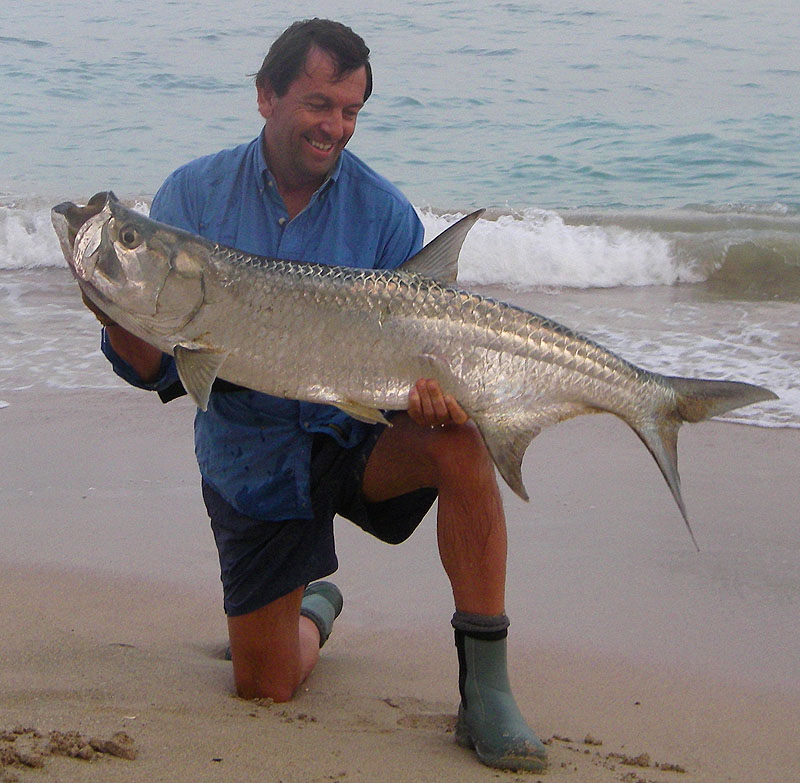

Catch Fish with
Mike Ladle
Information Page
SEA FISHING
For anyone unfamiliar with the site always check the FRESHWATER, SALTWATER and TACK-TICS pages. The Saltwater page now extends back as a record of over several years of (mostly) sea fishing and may be a useful guide as to when to fish. The Freshwater stuff is also up to date now. I keep adding to both. These pages are effectively my diary and the latest will usually be about fishing in the previous day or two. As you see I also add the odd piece from my friends and correspondents if I've not been doing much. The Tactics pages which are chiefly 'how I do it' plus a bit of science are also updated regularly and (I think) worth a read (the earlier ones are mostly tackle and 'how to do it' stuff).
26 May 2007
Holiday snaps 1 - tarpon.
I'm back from my trip to Tobago. My pal Steve Pitts, myself and our wives spent two weeks in mid-May enjoying the sunshine (jeez it was hot!) and trying to add a few more pieces to the jigsaw puzzle of fishing in the Caribbean. May is the back end of their dry season, the hottest and driest in living memory apparently. Where normally there is lush vegetation the ground was bare and parched, bush fires were frequent and even the biggest trees looked stressed. However, it did not stop us from fishing and most of our efforts were concentrated in the early morning (around five a.m.) or late evening (about 6.30 p.m.). During the first few days we tried to check out as many likely spots as possible and one of the most consistent ones, Sandy Point, close to the airport, was clearly a good bet. There was lots of bird activity with pelicans, laughing gulls, terns and noddys making the most of baitfish shoals.
Where there are baitfish and birds you can guarantee that the knowledgeable local fishermen will be there and sure enough, every morning, they were waiting for the action. Mostly the local blokes fish with handlines consisting of a coil of fifty pound nylon wound round a hefty piece of drainpipe. Tied to the end of the line is a single-hooked spoon or jig weighing no more than an ounce or two. The approach is to watch for feeding concentrations of birds which indicate 'blitzes' of jacks or sometimes schools of tarpon. As soon as action is spotted the lads run to the spot, wade into the breakers and whirling the lure around their head, cast it out to the frenzied fish. They are incredibly skillful at this, never get tangled lines and quite often manage to catch decent fish. Our friend Rupert tells us that his best jack landed in this way was twenty-three pounds and his best tarpon eighty. No mean effort on a handline from the beach.
Of course you can fish with rod and line but angling etiquette demands that you give way to the lads with the handlines. Some mornings there were mainly tarpon present and on others there was a mixture of jacks and tarpon. I fished with poppers, which have been very successful in the past, and Steve mostly used a sub-surface, red-headed, white-bodied plug. On the whole my poppers were ignored, although I missed a few attacks from tarpon. Steve's plug, on the other hand, was more effective on this occasion and he hooked a number of fish including the biggest of the trip which we beached with the help of one of the handliners.
As well as lure fishing it is possible to freeline or leger with fish baits and we saw one chap land a fine tarpon, after a mammoth struggle, using a hefty rod and bait fishing tactics. We had plenty of good fishing for other species too but more of that next time.
If you haven't signed the bass petition yet, please go to Saltwater page 168 and do it now.
If you have any comments or questions about fish, methods, tactics or 'what have you.'get in touch with me by sending an E-MAIL to - docladle@hotmail.com
Action?
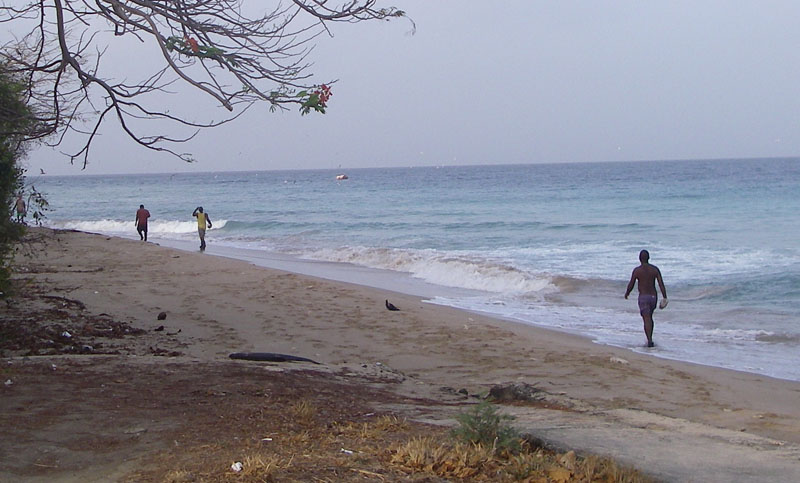
The birds gather.
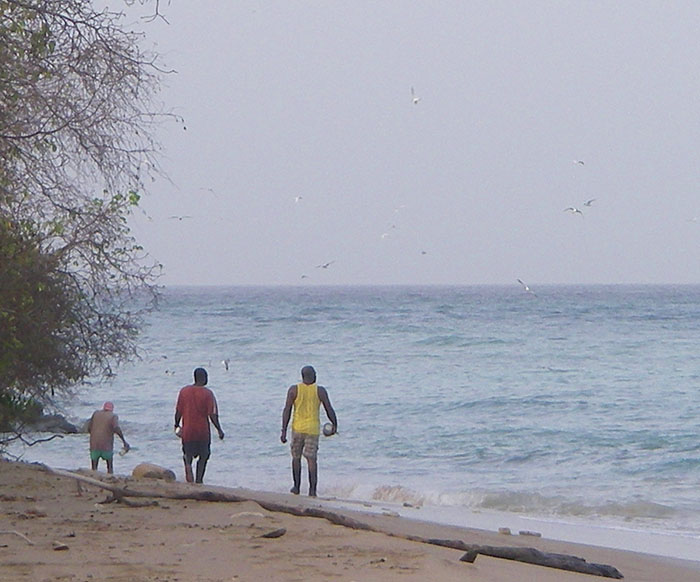
The lure.
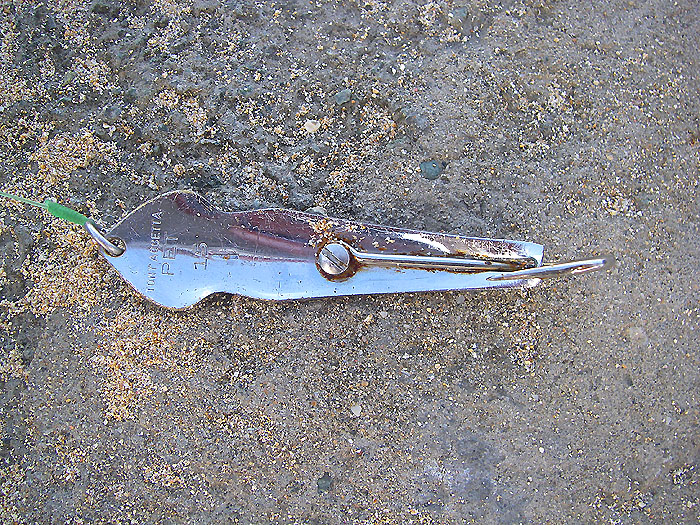
He's in!
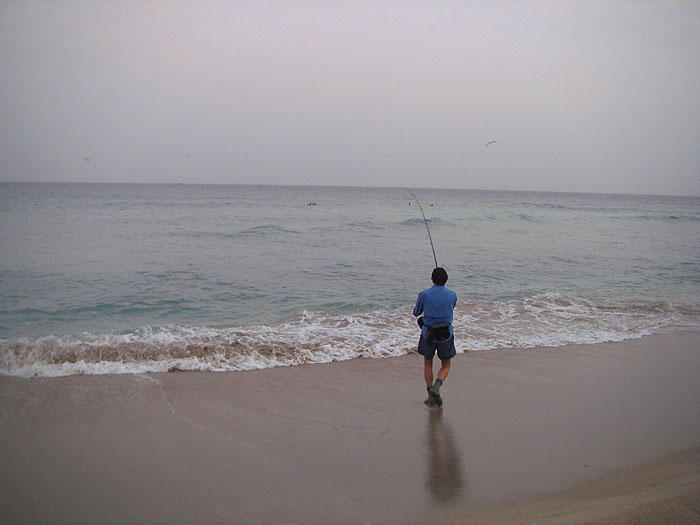
Almost beaten.
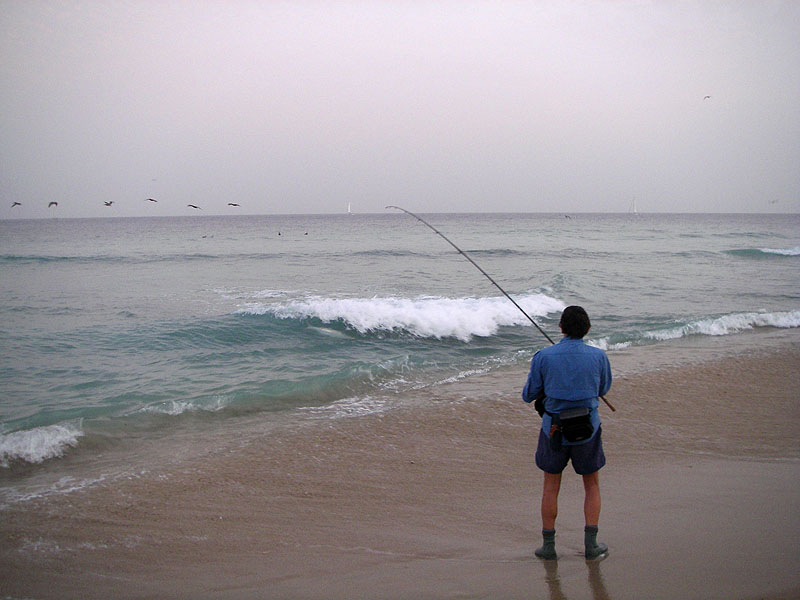
How about that?
